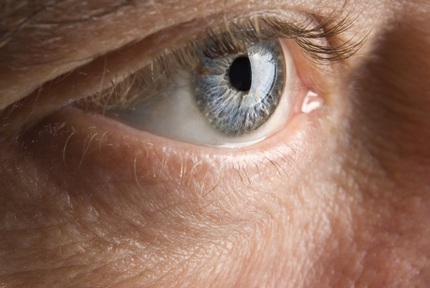Stem cell treatment used on first UK patient to cure Macular Degeneration
A pioneering trial of a new stem cell treatment for people with ‘wet’ Age-related Macular Degeneration (AMD) has commenced at Moorfields Eye Hospital following a successful operation on a patient.
The 60-year-old woman, is one of ten patients who have severely impaired sight and are in danger of going blind, taking part in the London Project to Cure Blindness.

Retinal surgeon, Professor Lyndon Da Cruz from Moorfields Hospital, who is performing the operations and is co-leading the London Project, said: “There is real potential that people with wet age-related macular degeneration will benefit in the future from transplantation of these cells.”
This first operation is a major milestone in the pioneering project, which was established ten years ago with the aim of curing vision loss in patients with ‘wet’ AMD.
According to the Royal National Institute for the Blind (RNIB), AMD affects more than 600,000 people in the UK and is the leading cause of blindness in adults.
The condition is known to cause loss of central vision, usually in both eyes, which can become increasingly blurred, colours appear less vibrant and familiar faces become difficult to recognise.
Research has revealed that one in ten people with ‘dry’ Age-related Macular Degeneration develop ‘wet’ AMD, sometimes called Neovascular AMD. The more serious condition develops when abnormal blood vessels form underneath the macula and damage its cells. Without treatment, vision can deteriorate within days.
The pioneering procedure involves taking a single stem cell from an embryo and growing it into a ‘patch’ of cells that can be transplanted behind the retina in an operation lasting between one and three hours.
Cells used in the process have been taken from donated embryos that were created during IVF treatment but not used.
The first surgery was successfully conducted on an anonymous 60-year-old UK patient with ‘wet’ AMD. With no known complications to date the team hope to determine her outcome in terms of initial visual recovery by early December (2015).
Scientists behind the pioneering procedure hope the research and surgery will dramatically transform lives, allowing individuals with sight loss to recognise faces of loved ones again and regain the ability to carry out everyday tasks like reading and driving.
Commenting on the research, Professor Pete Coffey of the UCL Institute of Ophthalmology, co-leader of the London Project, said: “We are tremendously pleased to have reached this stage in the research for a new therapeutic approach. Although we recognise this clinical trial focuses on a small group of AMD patients who have experienced sudden severe visual loss, we hope that many patients may benefit in the future.”
Furthermore, Richard Kramer, deputy chief executive at national deafblind charity Sense, added: “If this ground breaking operation fulfils its aim it has the potential to transform the lives of the growing number of people who are predicted to lose their sight due to Age-related Macular Degeneration.
“The operation could be a major milestone in finding a treatment for this common cause of blindness and we await the results of the trial with interest.”
The London Project is the result of a partnership between Moorfields hospital, the UCL Institute of Ophthalmology, the National Institute for Health Research (NIHR) and Pfizer Inc. with the aim of creating a potential therapy.
Pfizer’s UK Medical Director, Dr Berkeley Phillips, concluded: “At Pfizer we believe that great science comes through collaboration; no one person has all the answers and together, we can achieve more and move faster.
"Stem cell-derived therapy was only a theory until recent years and to be part of a project that is applying the latest scientific breakthroughs to help restore patients’ eyesight is truly rewarding.”
Latest News
 29-Jul-24
Dementia Bus gives carehome.co.uk staff insight into life with dementia
29-Jul-24
Dementia Bus gives carehome.co.uk staff insight into life with dementia
 01-Mar-24
Find out the top care homes in 2024
01-Mar-24
Find out the top care homes in 2024
 21-Mar-23
UK's top care homes in 2023 revealed
21-Mar-23
UK's top care homes in 2023 revealed
 03-Jan-23
carehome.co.uk launches free care helpline
03-Jan-23
carehome.co.uk launches free care helpline
 13-Dec-22
5 mins with Emily Whitehurst, chief operating officer for Constantia Healthcare
13-Dec-22
5 mins with Emily Whitehurst, chief operating officer for Constantia Healthcare